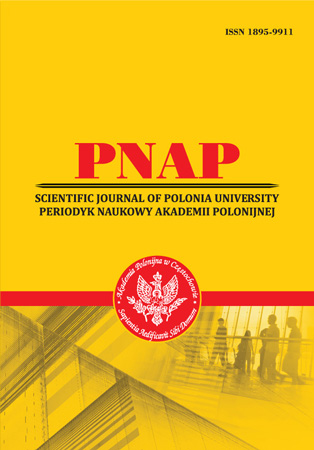EXPRESSING ATTITUDE IN ENGLISH AND UKRAINIAN ECONOMIC MEDIA DISCOURSE
Abstract
This paper studies linguistic devices used by the authors of English and Ukrainian economic media texts to reveal their opinion and give attitudinal assessment to the state of affairs in the sphere of economy. It is well-known that the main function of mass media is to communicate different viewpoints, but the ways and linguistic devices used to this purpose can significantly differ depending on the target audience. Business and economic journalism is quite young in Ukraine, and the recipients are not as demanding as the readers in English-speaking countries. Thus, there exist certain differences in presenting economic data and news in the compared languages. The research is based on the corpus of 50 articles from The Economist, Business Week and The Guardian in English and Interfax-Ukraine, NV (Novoe vremya), Obozrevatel and Unian in Ukrainian, where economic implications of the coronavirus pandemic are described. It is proved that expressing attitude is inevitably connected with the pragmatic aim to influence the reader’s perception of economic news and coax them to the author’s point of view.
References
2. A shift from paper to virtual cash will empower central banks. (2020). The Economist. Retrieved July 25, 2020, from https://www.economist.com/finance-and-economics/2020/07/23/a-shiftfrom-paper-to-virtual-cash-will-empower-central-banks
3. Authers, J. (2020). Robin Hood Is Pillaging the Sheriffs of BlackRock. Bloomberg. Retrieved July 29, 2020, from https://www.bloomberg.com/opinion/articles/2020-07-29/retail-investors-outperform-institutions-during-covid-crisis
4. Cherkashin, V. (2020). Yevropi pryishla pora platyty za rahunkamy COVID-19 [It is time for Europe to pay the bills for COVID-19]. Novoe vremya. Retrieved July 21, 2020. (in Ukrainian)
5. Governments must beware the lure of free money. (2020). The Economist. Retrieved July 23, 2020, from https://www.economist.com/leaders/2020/07/23/governments-must-beware-the-lureof-free-money
6. Kitcher, P. (1995). The Cognitive Functions of Scientific Rhetoric. Science, reason, and rhetoric, 47–66.
7. Locke, D. (1992). Science as Writing. Yale: Yale University Press.
8. Lozynskii, R. (2020). Testuvannia vlady na koronavirus: ucpishno sklaly lyshe region [Testing the authorities for coronavirus infection: only regions passed successfully]. Interfax. Retrieved May 15, 2020, from https://ua.interfax.com.ua/news/blog/662202.html
9. Lut, K.A. (2014). Zasoby vyraznosti v anglomovnomu ekonomichnomu dyskursi: kognityvniy I pragmatychniy aspekty [Means of Expressiveness in English Economic Discourse: Cognitive and Pragmatic Aspects]. [Dissertation for a Candidate Degree in Philology, Kherson State University, Ministry of Education and Science of Ukraine]. (in Ukrainian)
10. McCloskey, D. (1994). Knowledge and Persuasion in Economics. Cambridge : Cambridge University Press.
11. McCloskey, D. (1998). The Rhetoric of Economics. Univ. of Wisconsin Press.
12. Partridge, J. (2020). Gold price hits record high amid fears over coronavirus crisis. The Guardian. Retrieved July 27, 2020, from https://www.theguardian.com/business/2020/jul/27/gold-price-record-coronavirus-economy-us-china
13. Petushinskaya, E.G. (2008). Yazyk populiarnogo economicheskogo diskursa: na material angloiazychnoy publitsistiki [The language of popular economic discourse: a case study of English political journalism]. [Dissertation for a Candidate Degree in Philology, Kolomna]. (in Russian)
14. Prikhodko, A.I. (2012). Implitsytnost kak sposob skrytogo otsenivaniya [Implicitness as a means of latent evaluation]. Aktualnyie problemy filologii I pedagogicheskoy lingvistiki. Retrieved July 27, 2020, from https://cyberleninka.ru/article/n/implitsitnost-kak-sposob-skrytogo-otsenivaniya. (in Russian)
15. Samuels, W. J. (1990). Economics as Discourse: an analysis of the language of economists. Boston ; Dordrecht ; London : Kluwer Academic Publishers.
16. Shevchenko, I.S., and Morozova, Ye.I. (2003). Diskurs kak myslekommunikativnoe obrazovanie [Discourse as a mental and communicative phenomenon]. Visnyk Kharkiv.nats. un-tu im.V.N. Karazina. – V.N. Karazin National Univ. Messenger, 586, 33-38. (in Russian)
17. Topping, A. (2020). UK working mothers are 'sacrificial lambs' in coronavirus childcare crisis. The Guardian. Retrieved July 24, 2020, from https://www.theguardian.com/money/2020/jul/24/uk-working-mothers-are-sacrifical-lambs-in-coronavirus-childcare-crisis
18. Toulmin, S. (1995). Science and the Many Faces of Rhetoric. Science, reason, and rhetoric. Univ of Pittsburgh Press.
19. Van Dijk, T. A. (1998). Ideology: A multidisciplinary approach. London: SAGE.
20. Yanytskii, A. Ekonomichna kryza cherez pandemiiu COVID-19 [Economic crisis as a result of COVID-19 pandemic]. Obozrevatel. Retrieved March 30, 2020, from https://www.obozrevatel.com/ukr/economics/andrij-yanitskij-ekonomichna-kriza-cherez-pandemiyu-covid-19-strategichni-ta-finansovi-zapobizhniki-dlya-biznesu.htm (in Ukrainian)
Abstract views: 241 PDF Downloads: 155







